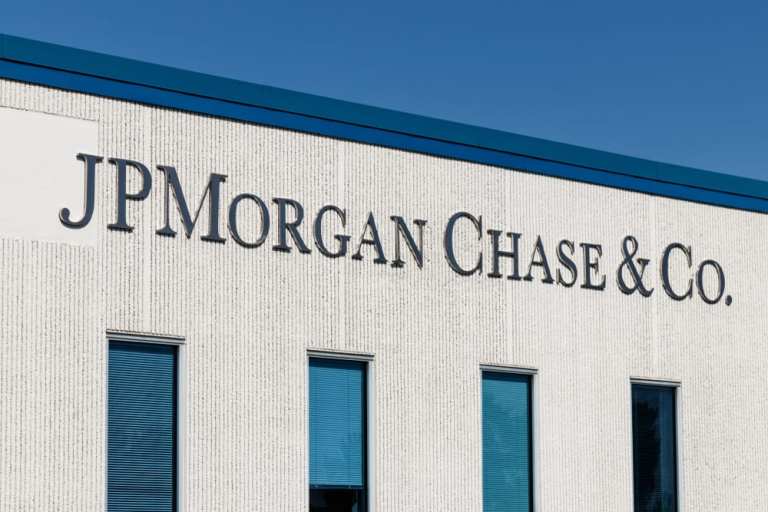JPMorgan Points To Healthy Consumer Spending, Card Transactions Jump 10 Pct.

The consumer is doing just fine.
To that end, JPMorgan Chase reported results that showed continued strength in U.S. consumer banking and spending on credit cards.
In terms of headline numbers, the banking giant reported earnings per share of $2.57, up 21 percent year on year and well above the $2.35 per share that been expected. The top line, known as managed revenue, came in at $29.2 billion, while estimates had pegged revenues at just under $28 billion.
A rebound in trading volumes helped boost results, and Wall Street may have trained its collective gaze on the fact that revenues from the markets business were up 56 percent from last year to $5 billion, and where fixed markets revenues were up by 78 percent, with equity trading rebounding 15 percent.
But drilling down a bit, to get a sense of the state of the consumer, retail banking saw fourth-quarter profit rise by about 5 percent to $4.2 billion, faster than revenue growth of 3 percent to $14 billion. Management said on the conference call with analysts following the earnings release that average total loans, excluding loan sales in home lending, were up 3 percent year over year.
Credit performance continues to be strong, noted Chief Financial Officer Jennifer Piepszak, as credit costs – measured as the net impact of chargeoffs of $1.5 billion and a reserve release of $100 million – came in at $1.4 billion, down from $1.5 billion in the fourth quarter of last year. In the quarter, the company took a $1.2 billion reserve for credit losses, which was down 10 percent from a year ago, according to the income statement.
As Piepszak told analysts, the U.S. consumer is strong from a credit perspective and in terms of spending sentiment.
And in what may be a reflection of that same positive sentiment and activity, credit card loans were up 8 percent year over year to $168 billion. Card transactions were up 10 percent on what CEO Jamie Dimon called a “robust” holiday season. Average deposits in the consumer and community banking segment were up 5 percent. Auto loans were unchanged at $83.5 billion, as measured year on year, but gained sequentially from the $83.1 billion measured at the end of the third quarter.
Supplementals provided by the company showed that merchant processing volumes were $402.9 billion, compared to $375.2 billion in the same quarter of 2018.
Fielding questions about comments Dimon made in the earnings release tied to “easing trade issues” and “tough market activity,” he said activity had improved along with sentiment. “How long that continues, we don’t know,” he said, but added that trade issues were unlikely to go away entirely, with ongoing tensions between China and the U.S. still in place.
In response to capital allocation, looking ahead, Dimon noted that there could be acquisitions on the horizon. Specifically, he mentioned electronic payments and healthcare, where, for example, the company acquired Instamed in a space where a great majority of transactions, as much as 90 percent, are still done by check.
$JPM reports 4Q19 net income of $8.5B and EPS of $2.57 on revenue of $29.2B with ROTCE of 17%; record full-year 2019 net income of $36.4B and EPS of $10.72 on revenue of $118.7B with ROTCE of 19%
— J.P. Morgan (@jpmorgan) January 14, 2020
Delving Into Tech
The company also said in its supplemental materials that active digital customers were up 6 percent year over year to 52.4 million, outpaced by the 12 percent growth in active mobile customers to $37.2 million. Branch count was down, year over year, by 1 percent, to 4,976. Management has signaled that investments in technology will continue.
One question was posed on the call about application programming interfaces (APIs). Piepszak maintained that customers’ data security and privacy remain of the “utmost importance,” and added that “we think over time the best way to do that as securely as we can is to have third-party apps only access data through our APIs.” She and Dimon said the bank will seek to give customers the tools to control access to data, and in Dimon’s words, “turn off” data that they do not in fact want to share. The commentary came after the bank said it will disburse tokens to third parties, embedded with limited data.